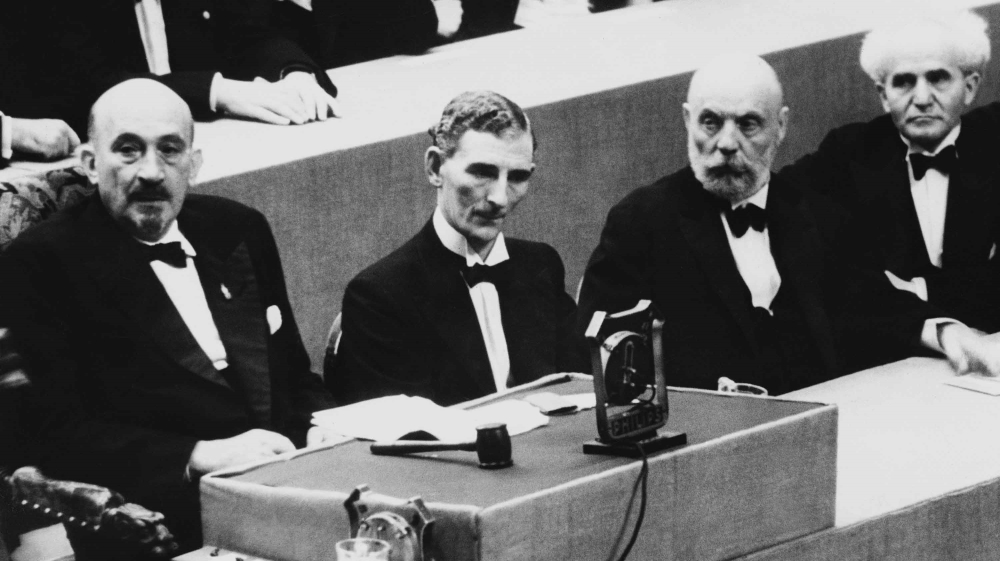Protesters in London call for an ‘end to genocide’
Pro-Palestinian activists and supporters wave flags and hold placards outside the Foreign, Commonwealth & Development Office during an “End The Genocide, Hands Off Lebanon, Don’t Attack Iran” national demonstration in London

Ultra-Orthodox Jews hold banners during a demonstration in support of Palestinians in Gaza in London
Palestine Action remove busts of Israel’s first president from UK university
In a video posted by the group Palestine Action on X, two people wearing balaclavas and black t-shirts can be seen shattering a glass display with a hammer before removing the busts of Chaim Weizmann and placing them in black bags.
The pro-Palestinian protest network is best known for its attempts to disrupt and halt arms dealers that provide weapons to Israel.
Weizmann, born in what is Belarus today, was a chemist and an influential figure in procuring the Balfour Declaration, a public pledge by the United Kingdom declaring its aim to establish “a national home for the Jewish people” in Palestine.
It is viewed as one of the main catalysts of the ethnic cleansing of Palestine in 1948 and the creation of the state of Israel.
Weizmann moved to the UK in 1904 to lecture at the University of Manchester.
In a 1914 letter to the Manchester Guardian, now known as The Guardian newspaper, Weizmann wrote that “should Palestine fall within the British sphere of influence, and should Britain encourage a Jewish settlement there, as a British dependency, we could have in 20 to 30 years a million Jews out there – perhaps more; they would develop the country, bring back civilization to it and form a very effective guard for the Suez Canal”.

Chaim Weizmann, left, presiding over the 21st Zionist Congress in Geneva in 1939
























































